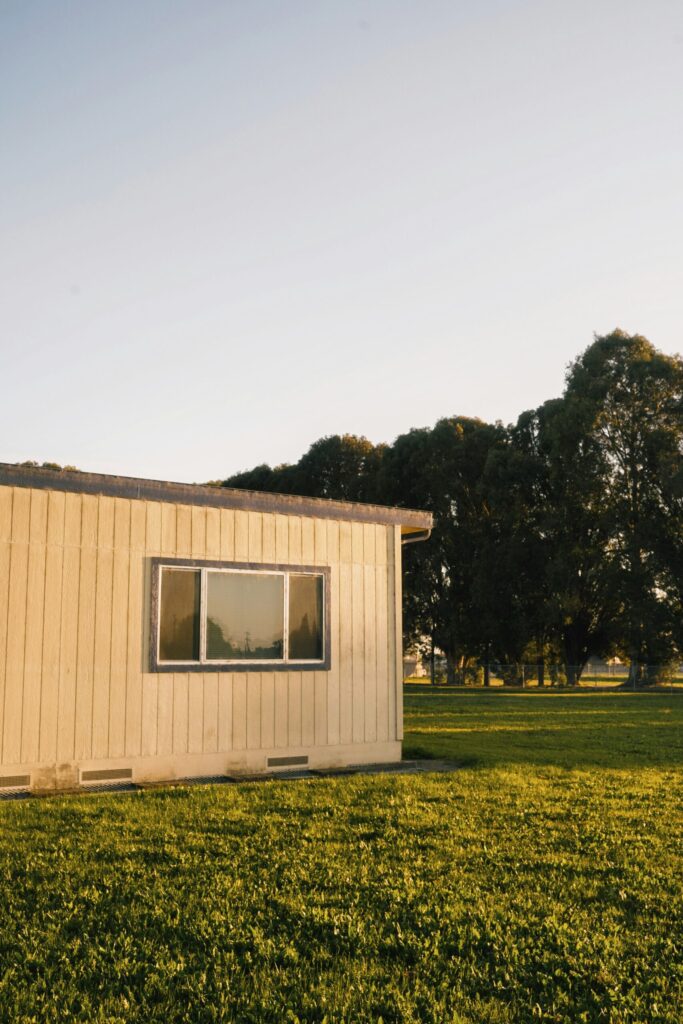Are you thinking about buying a mobile home park?
If so, you’re probably wondering: What happens when a mobile home park is sold — and what do you need to do next?
👉 Want to see it in action? Watch my full YouTube video, where I walk you through a real mobile home park purchase, tenant onboarding, and the first steps after closing.
Buying a park isn’t just about collecting lot rent. Managing tenants, following the law, setting new policies, and building goodwill are all critical steps to turning a purchase into a profitable investment.
Let’s walk through exactly what to expect — and how to do it right.
Don’t Miss Any Updates. Each week I’ll send you advice on how to reach financial independence with passive income from real estate.
Why Mobile Home Parks Are Being Bought and Sold More Than Ever
Over the past decade, the mobile home park industry has changed dramatically.
Private equity firms, real estate investors, and individual buyers are snapping up parks because they offer:
-
Stable lot rent cash flow
-
Low maintenance costs compared to apartments
-
High demand for affordable housing
Parks that once stayed in families for generations are now being sold to new buyers — many entering the business for the first time.
But mobile-home parks are heavily regulated and deeply personal for residents.
Handling the transition well makes the difference between a profitable investment and a legal headache.
What Happens When a Mobile Home Park Is Sold (From the Owner’s Perspective)
If you’re the new park owner, here’s the real-world process you’ll need to follow after you close.
Step 1: Providing Proper Notice
After closing, your first job is making sure every mobile home park resident receives written notification that the park has been sold.
Depending on your state law or local ordinance, you may be required to deliver notice by:
-
Certified mail with return receipt
-
Posting signs in common areas
-
Direct phone call or hand-delivered letter
Some states require 30 days notice, while others (like Ohio laws) might have different timelines.
If your state has a revised code for park sales, follow it exactly to avoid future disputes.
Proper notice is critical. Skipping this step could expose you to legal action from residents.
Step 2: Meeting the Residents
Your next move is to personally introduce yourself — or have your park manager do it. (My business partner and I feel that this is something we should do in person – as you can see this being done in the video at the beginning of this article)
This builds trust early and gives you a chance to:
Remember: for many, their mobile home is their personal property, and sudden change can create fear. Approaching residents respectfully shows good faith.
Step 3: Handling New Lease Agreements
Most buyers will want to update or replace existing rental agreements.
When creating a new lease, you should clearly outline:
-
Rental amount and any additional fees
-
Park rules and community rules
-
Handling of late fees, eviction notices, and nonpayment of rent
-
Specifics about common areas like roads, parks, and utilities
Be sure to honor any long-term lease agreements already in place. In many states, you cannot force out tenants under valid existing contracts without following a legal process.
Consult with legal advice or a real estate agent familiar with mobile home park sales before finalizing your lease templates.
Step 4: Adjusting Lot Rent (If Needed)
It’s common for new park owners to raise lot rent — especially if the previous owner kept rents artificially low.
However, rent increases must follow:
-
State and local tenant law
-
Reasonable notice periods (often 30 to 60 days)
-
Fair, justifiable amounts based on the local market
Raising the rent too fast or without proper notice could cause major pushback — or even legal battles.
Good faith negotiations go a long way toward making rent changes smooth.
Join the Passive Investors Circle
Your Legal Responsibilities as a New Park Owner
Once you take ownership, you are legally responsible for the park’s operation.
Here’s what you need to be aware of:
Notice of Change Requirements
Some states require you to provide a notice of the change in park ownership to:
The notice usually must include:
-
Your name and phone number
-
Date of the sale
-
Changes to the rental fees, if any
-
Summary of any special rules
Handling Existing Residents Properly
Even if you own the land, mobile home units are the residents’ private property.
That means you must:
-
Respect long-term lease agreements
-
Follow tenant law around evictions and nonpayment of rent
-
Offer reasonable notice if asking residents to sign new documents or leave
If you need to evict a resident, you must file an eviction case through proper channels — and prove violation of lease terms.
Community Rules and Park Management
Updating park rules is common after a sale.
You might want to improve the look and feel of the property by enforcing:
Just be sure your community rules are reasonable, legal, and clearly communicated.
A strong park manager or management team is critical to enforce rules fairly and handle tenant concerns.
Don’t Miss Any Updates. Each week I’ll send you advice on how to reach financial independence with passive income from real estate.
Common Challenges New Park Owners Face
Even if you follow the law perfectly, expect some bumps.
Some of the most common issues include:
-
Resident anger over changes (this is the most frequent issue we encounter)
-
Legal disputes over rent hikes
-
Resistance to using new payment systems or park management software
-
Pushback on enforcing new rules
Plan for these issues. Set clear expectations. And always document everything you do.
How to Handle a Park Sale the Right Way
Here are strategies that successful mobile home park operators use when taking over:
-
Deliver written notification to every resident immediately
-
Keep your phone number available for resident questions
-
Host an informal meet-and-greet to explain changes
-
Provide reasonable notice for any rent increase
-
Work with an attorney to create rock-solid written rental agreements
-
Respond quickly to issues around common areas, utilities, or road maintenance
A smooth transition builds trust, which leads to lower turnover and a more profitable park.
Should You Raise Rent Immediately?
It depends.
If the actual cost of operating the park (insurance, taxes, repairs) requires a rent increase, it’s justified.
But sudden massive rent hikes can drive out residents, lower occupancy, and spark bad publicity — especially if you’re in an area sensitive to affordable housing concerns.
A good rule of thumb:
-
Keep rent increases reasonable (5–10% typical)
-
Provide written notice well in advance
-
Consider offering multi-year leases at current rates to stable tenants
FAQs
Q: Can I change the rules for mobile home accessories, pets, or yard standards?
A: Yes, but you must update your community rules and provide reasonable notice before enforcing new standards.
Q: How much notice do I have to give for rent increases?
A: It depends on your state. Most require 30 to 60 days’ written notification.
Q: Can I evict tenants who don’t sign my new lease?
A: You must follow your state’s tenant law for evictions, including giving proper notice and reasons allowed under the law.
Q: How do I enforce new payment policies?
A: Offer multiple ways to pay (including online), provide a clear late fee schedule, and enforce consistently.


